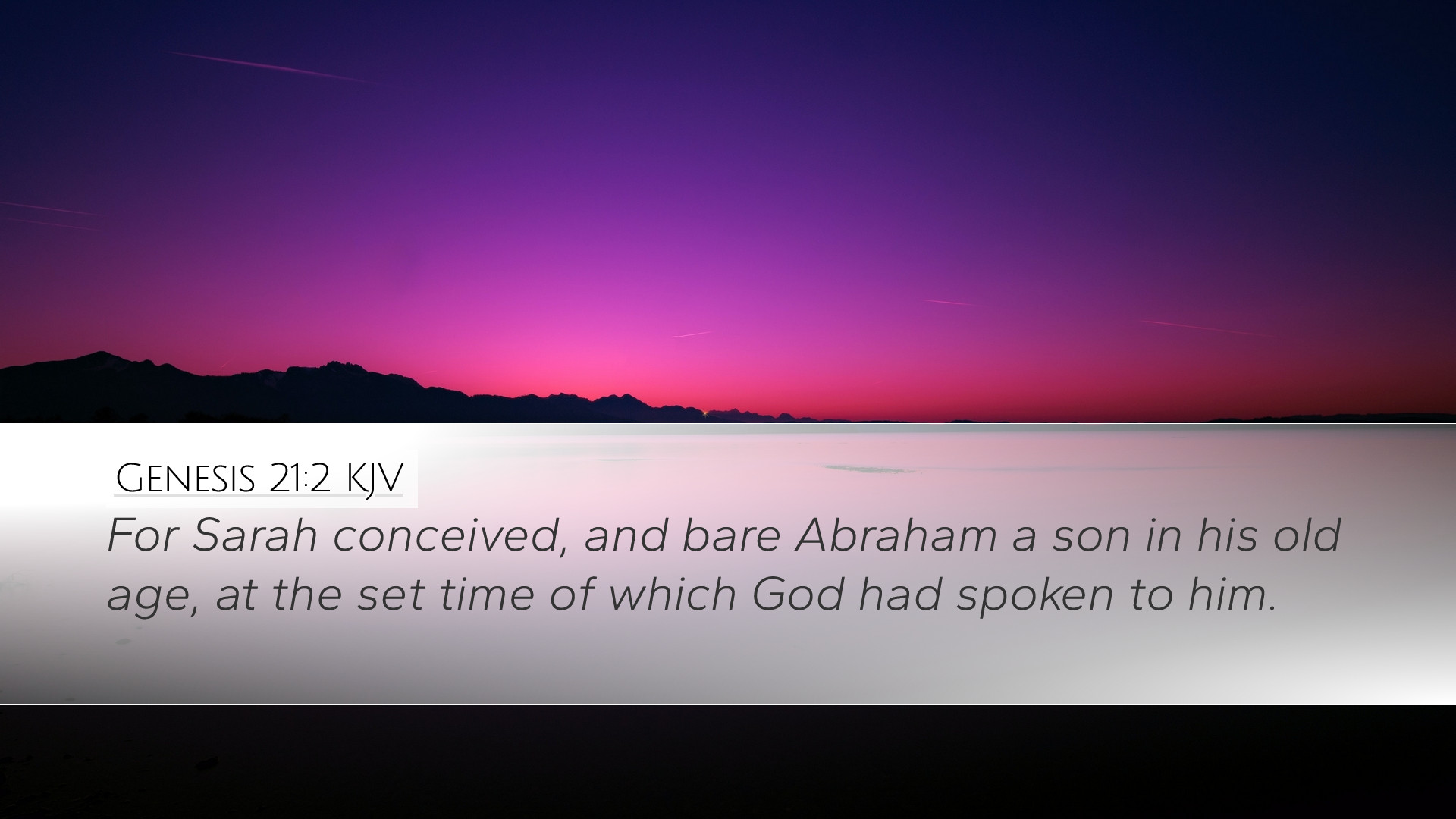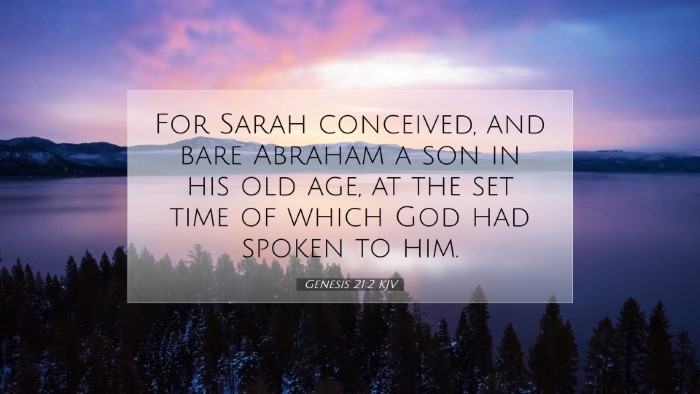Genesis 21:2 Commentary
Scripture: "For Sarah conceived, and bare Abraham a son in his old age, at the set time of which God had spoken to him."
Introduction
This verse marks a pivotal moment in the narrative of Abraham and Sarah, reflecting the faithfulness of God in fulfilling His promises. It encapsulates themes of divine intervention, hope, and the miraculous nature of God’s covenantal relationship with His people.
Exegesis and Commentary
In the context of Genesis 21, this verse confirms the long-awaited birth of Isaac, marking the fulfillment of God’s promise to Abraham and Sarah. The implications of this moment resonate through the theological fabric of the Biblical narrative.
The Significance of Conception
Matthew Henry notes that the conception and birth of Isaac were not merely biological events, but divine workings that qualified Isaac as the child of promise. Sarah's conception, in her old age, transcends natural limitations, showcasing God's sovereignty over life. This miracle exemplifies God’s power to intervene in human affairs and perform what is deemed impossible.
The Time Set by God
Albert Barnes emphasizes the phrase “at the set time,” indicating that God's promises unfold according to His divine timetable and not human expectations. It portrays the importance of patience in faith as God’s actions, though delayed, come with perfect timing. This serves as an encouragement to believers to trust in God’s perfect plan even when circumstances seem unfavorable.
Impact on Abraham and Sarah
Adam Clarke elaborates on the emotional and spiritual ramifications of Isaac's birth for both Abraham and Sarah. For Abraham, having a son in his old age symbolizes hope and the continuation of his lineage, while for Sarah, it fulfills her desire for motherhood which she had long deemed impossible. This joy signifies not just physical offspring but the spiritual fulfillment of God's covenant.
Theological Implications
The birth of Isaac serves as a foreshadowing of significant covenantal themes in Scripture:
- Covenantal Promise: The event highlights God's fidelity in covenant relationships. It affirms the promises made to Abraham in Genesis 12 and 15, strengthening the notion that God is faithful to His Word.
- Miraculous Births in Scripture: Isaac’s birth opens the door to a series of miraculous births throughout the Bible, including those of Samuel and eventually Jesus, showcasing God’s power to bring new life in extraordinary ways.
- Faith and Obedience: This moment serves as a testimony to the faith required by both Abraham and Sarah, who trusted God despite their advanced age, displaying a model of faith that is significant for future generations.
Application for Believers Today
Genesis 21:2 invites contemporary readers to reflect on their own faith journeys. The themes of hope, fulfillment of promises, and divine timing are applicable in many contexts:
- Trust in God’s Timing: Just as Abraham and Sarah waited for God’s promise, modern believers are encouraged to trust in God’s plan for their lives, recognizing that His timing may differ from their own.
- Hope in Despair: This passage assures those in hopeless situations that God can bring about change and fulfillment in ways that seem impossible. Like Sarah, who laughed at the prospects of motherhood, believers may find that God’s plans defy understanding, yet they are worth waiting for.
- The Call to Faithfulness: The narrative encourages persistence in faith and obedience. Abraham and Sarah’s trust serves as a testament to God’s ability to work through those who are willing to believe and remain faithful.
Conclusion
Genesis 21:2 encapsulates the beauty of God’s covenant promises manifested through the miraculous birth of Isaac. It highlights themes of divine timing, fulfillment of God’s word, and serves as an encouragement for current believers to hold onto their faith, trusting that God will bring about His promises in their lives. As eternal truths are unearthed from this passage, it remains essential for pastors, students, and theologians to engage deeply with this narrative, allowing its richness to inform their understandings and enrich their ministry.


